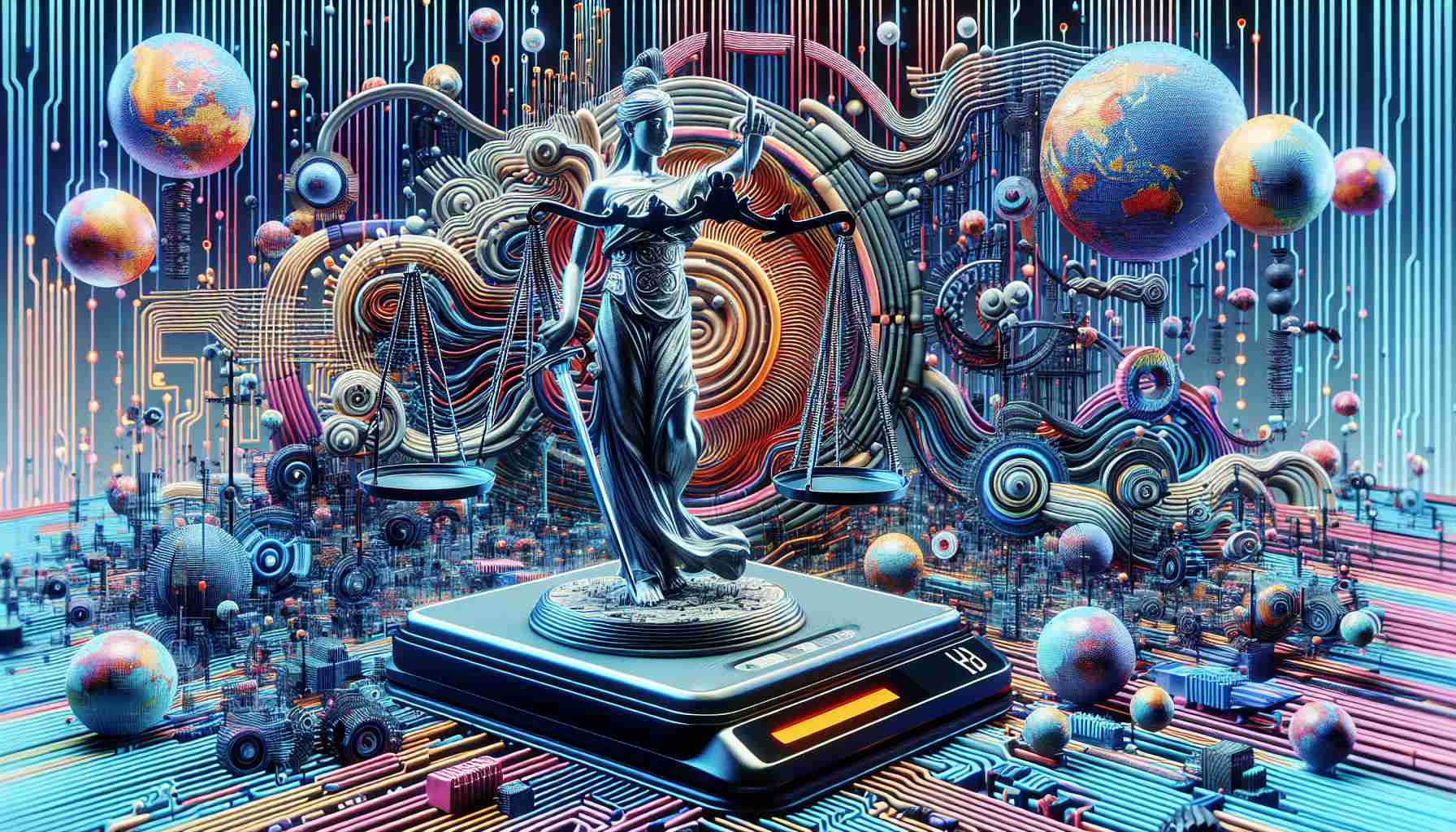In the rapidly advancing landscape of artificial intelligence, Japan’s copyright law is encountering profound challenges that are shaping its future. The rise of AI-generated content, from art and music to literature, has brought forward intense debates about copyright ownership in Japan, a nation known for its rich cultural industries.
Japan’s copyright law, traditionally designed to protect human creators, finds itself ill-equipped to address the complexities introduced by AI. As AI technologies become more sophisticated, the question emerges: who owns the rights to content created by algorithms? The lack of clear guidelines leaves both creators and users in a state of legal ambiguity.
The Japanese government is not oblivious to these challenges. In recent discussions, there has been a push towards revising current copyright laws to include explicit provisions for AI-generated works. These conversations grapple with balancing the protection of human creativity with the encouragement of technological innovation.
Key stakeholders in Japan—including artists, businesses, and legal experts—are seeking solutions that ensure fair compensation and incentivize creativity without stifling new technological developments. Some propose a hybrid model, where AI-generated outputs are granted a different level of copyright protection compared to human-created works.
As Japan navigates these uncharted waters, the outcome could set a precedent for countries worldwide facing similar issues. The nation stands at a crossroads, where its decision could either bolster its creative economy or create barriers that impede future innovations. The steps Japan takes next in its copyright law reform may redefine the global understanding of creativity in the AI age.
Japan at the Crossroads: The Unseen Implications of AI on Copyright Laws
As Japan treads the uncertain path of incorporating AI innovations into its copyright framework, the implications extend beyond mere legalities, significantly impacting the daily lives of individuals and the broader societal fabric.
Unseen Economic Shifts: Primarily, the rise of AI-generated content presents a paradoxical economic shift. While AI can enhance productivity in creative sectors, it simultaneously threatens the livelihood of traditional artists and creators. The potential for AI to produce artwork, music, literature, and more diminishes the demand for human-created content, potentially destabilizing longstanding cultural industries. How can Japan safeguard traditional artistry while welcoming technological growth?
Unprecedented Innovation Opportunities: However, the integration of AI also heralds innovative avenues. By updating copyright laws to clearly address AI contributions, Japan can become a leader in technology-driven creative industries. This could foster a new era of collaboration between technologists and artists, ultimately enriching Japan’s cultural economy.
International Precedent: The outcomes of Japan’s legislative revisions will likely echo on a global scale. Countries worldwide are watching closely; Japan’s approach could offer a blueprint for navigating the complex interplay of AI and copyright in their own jurisdictions.
Advantages and Disadvantages: On the one hand, revising copyright laws can protect authentic creativity and continue incentivizing human artists. On the other hand, overly stringent regulations might deter AI innovation, risking Japan’s position in the global technological race.
Japan stands at the threshold of a pivotal decision, one that could either safeguard its cultural heritage or embrace a new frontier in creative expression. This balance of protection and innovation remains central to the discourse as stakeholders closely evaluate the path forward.
For further insights into copyright discussions, visit World Intellectual Property Organization and for AI advancements explore OpenAI.








